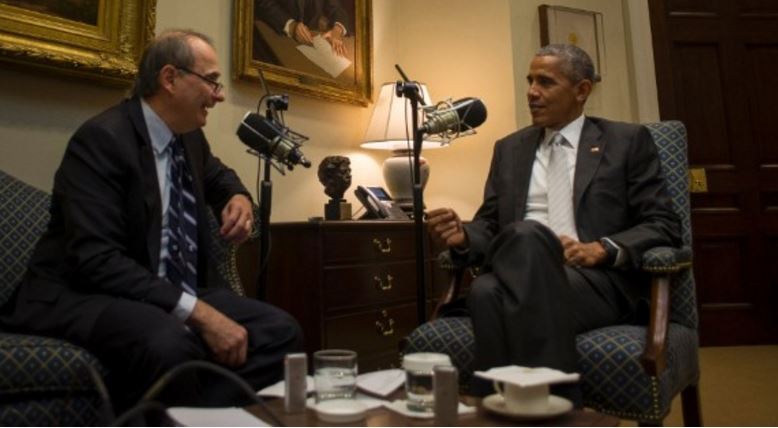CNN ran with a story about President Obama saying he would have beaten Donald Trump. After reading the entire transcript of Obama’s interview with David Axelrod, it was evident that the media dereliction continues as they fail to present the gist of the discussion.
CNN hyperventilates about President Obama’s statement
No one doubts that the media is responsible for an informed populace. Coverage of President Obama’s interview with David Axelrod is a classic example.
“President Obama, making a bold statement about the 2016 election in a nearly hourlong sitdown with his old friend and advisor, David Axelrod,” said the CNN reporter. “Saying he still believes there is more that unites Americans than divides them.”
The reporter then played the following sound bite.
I am confident in this vision because I’m confident that if I — if I had run again and articulated it, I think I could’ve mobilized a majority of the American people to rally behind it.
“But the President told Axelrod, Democrats have to do a better job of connecting with voters everywhere,” the reporter continued. “Especially those who feel they have been left behind as the economy has recovered from the great recession — saying of Hillary Clinton’s run.”
She then played the following from the President.
If you think you’re winning, then you have a tendency, just like in sports, maybe to play it safer. … the problem is, is that we’re not there on the ground communicating not only the dry policy aspects of this but that we care about these communities, that we’re bleeding for these communities.
“The President says the party must rebuild through organizing at the local level,” the reporter continued. “And having a presence even in the reddest of districts.”
Throughout Monday, CNN characterized the story as some Obama braggadocio as well as an Obama slight against Hillary Clinton. Neither was true. In fact, when reviewing the transcript of the Axelrod interview, it was evident that Obama realized there was a double standard that was partially responsible for Hillary Clinton’s loss. He acknowledged that while the Obama coalition can win presidencies, it does not elect a governing Congress.
CNN missed the most significant segment of the interview as it relates to the perceptions of rural America and the white working class.
You and I both, I think, would acknowledge that when we were campaigning, we could connect. Once you got to the White House and you were busy governing, then partly, you’re just constrained by time, right? You are then more subject to the filter. And this is — you know, I brought up Fox News, but it was Rush Limbaugh and the NRA and there are all these mediators who are interpreting what we do, and if we’re not actually out there like we are during campaigns, then folks in — in a lot of these communities, what they’re hearing is Obama wants to take away my guns. Obamacare’s about transgender bathrooms and not my job, Obama is disrespecting my culture and is primarily concerned with coastal elites and minorities. And so — so part of what I’ve struggled with during my presidency and part of what I think I’ll be thinking a lot about after my presidency is how do we work around all these filters? And it becomes more complicated now that you’ve got social media, where people are getting news that reinforces their biases and — and separates people out instead of bringing them together. It is going to be a challenge, but look, you look at what we did in rural communities, for example, Tom Vilsack, my agriculture secretary from Iowa. We — we devoted more attention, more focus, put more resources into rural America than has — has been the case probably for the last two, three decades. And — and it paid great dividends, but you just wouldn’t know that, that’s not something that you would see on the nightly news.
In effect, the media allowed, in fact, many times they were the delivery medium for the misinformation that created a misinformed white working class who voted overwhelmingly against their personal economic interests and welfare. And what did CNN do? They ran with a part of the interview that was the least significant or newsworthy.

